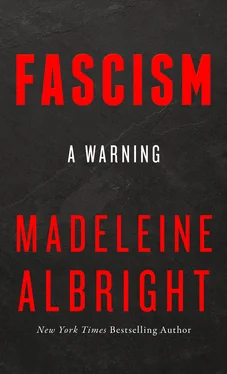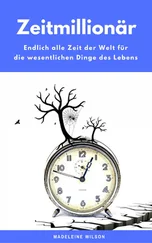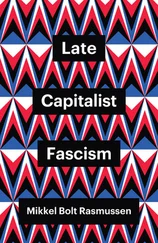Mussolini rejected Hitler’s racial theories, which he privately called “stupid, barbarous, and unworthy of a European nation.” As an Italian, he had no cause to rhapsodize about the myth of a master Nordic race. He had also, early in his career, been recognized by Jewish newspaper publishers as one of the world’s leading Christian defenders of their people.
Memories of the twentieth century would be far different had Italy chosen to align itself with France and Great Britain in the Second World War, as it had in the First. Sadly, Mussolini had resentments left over from the earlier alliance and felt that British and French officials looked down on him as one might on an uncouth third cousin. The decisive break came in 1935 when the League of Nations slapped economic sanctions on Italy for invading Ethiopia. Mussolini deemed it hypocritical for Europe’s leading imperial powers to punish his homeland for wanting an empire of its own.
Mussolini caught Hitler’s fancy because they both favored the same machismo-laden rhetoric of daring, nationalism, anti-Communism, and war. In Mein Kampf , the German lauded “the great man south of the Alps, who, full of ardent love for his people, made no pacts with the enemies of Italy.” Many of the tactics Hitler employed to seize and consolidate power, Mussolini had adopted previously: the reliance on violent gangs, the intimidation of parliament, the strengthening and subsequent abuse of authority, the subjugation of the civil service, the affinity for spectacle, and the insistence that the leader, whether Der Führer or Il Duce, could do no wrong.
Hitler and Mussolini had moments of genuine collegiality, and the former’s appreciation for the Italian dictator’s early triumphs never waned. But Chaplin’s comic satire had a real-life mirror. The two leaders and the countries they represented were an imperfect fit. A diplomatic troll might have scripted the chancellor’s first Italian visit, to Venice in June 1934. Problems began at the airport, where Hitler exited his plane wearing a drab khaki raincoat, only to be welcomed by Mussolini in full military dress. At their meeting, Mussolini tried to get by without an interpreter and so failed to understand much of what Hitler said. The next morning, Mussolini showed up for a parade thirty minutes late, then made a speech in Piazza San Marco that barely acknowledged Hitler’s presence. At lunch, a mischievous chef added salt to the Führer’s coffee. The German leader chose an afternoon boat tour to discuss the racial inferiority of Mediterranean peoples. Halfway through that evening’s reception, Mussolini walked out, and later, in a calculated leak to reporters, he compared his guest to Genghis Khan. Hitler thought of Victor, the Italian monarch, as “King Nutcracker.”
Over time, the personal dynamics improved, but not by much. Hitler became frustrated with Italy as an ally, and Mussolini was exasperated that, when conducting business, his German counterpart rattled off statistics like machine-gun fire and never seemed to shut up. Il Duce’s son-in-law noted at the time, “Hitler talks, talks, talks. Mussolini suffers—he, who is in the habit of talking himself, and who instead has to remain silent.” After one encounter, the two had to fly to Berlin in the Führer’s plane. As soon as they were aloft, Mussolini took his revenge by insisting—to Hitler’s white-knuckled terror—on piloting the aircraft.
The ugliness in Italian Fascism was displayed most graphically before the party took power, when its armed squads killed an estimated two thousand leftist rivals, and in Ethiopia, where Rome’s designated occupiers ran viciously and without a leash. In office, however, Mussolini did not feel called to conduct domestic purges of the type orchestrated by Hitler, and for all his tough words, he could still be shocked. In 1934, when Hitler ordered the murder of a hundred of his own supporters, Mussolini was astonished by his cruelty to onetime friends. A short time later, a Nazi assassination squad in Vienna shot the Austrian chancellor in the throat and sat around for three hours while he bled to death on a sofa. At the time, the chancellor’s wife and two young children were guests of Il Duce’s, staying at a villa close to his along the Adriatic coast. Mussolini went to the villa and, in halting German, personally conveyed to the widow the sad news of her husband’s homicide.
MUSSOLINI’S EGO LIFTED HIM TO THE PINNACLE OF POWER, THEN betrayed him. The man had such faith in his instincts, and believed so fully in what he heard himself say, that he failed to either seek or to take sound advice. For much of his tenure, he occupied Italy’s principal cabinet positions himself, as many as six simultaneously. Unlike Hitler, who left the bulk of hard work to others, Mussolini took pride in the art of government. He just wasn’t that good at it.
His most telling failure was in preparing Italy for what was to come. Nothing made him more eager than the expectation that his country would prove itself in conflict. “War is to a man what motherhood is to a woman,” he liked to say. Raising his fists for emphasis, he implored his countrymen to do what worthy Romans did: hate their enemies, steel themselves for battle, and offer their lives for the nation.
Playing Caesar, he regarded the conquest of Ethiopia as an auspicious start; and in March 1938, he ordered his air force to strike Barcelona on behalf of General Francisco Franco and the right-wing military in Spain’s Civil War. For two terror-filled days, liquid-air bombs pelted the city’s undefended streets, exploding trolleys and buses, flattening apartment buildings, breaking windows, and leaving rescue workers to scoop into baskets the human fragments they found on blood-spattered streets. Mussolini exulted that the time had come for Italians to “horrify the world by their aggressiveness … instead of charming it with their guitars.” He also hoped to impress the Germans who he said “love total, pitiless war.” If his goal was to generate horror, he succeeded. The pope demanded that the bombing stop. When the death toll climbed above thirteen hundred, so did Franco. So, even, did Hitler.
Beating up on soft targets was one thing, but after a decade and a half of Fascist rule, Italy was in no shape to fight a modern war against a capable foe. It didn’t have an adequate supply of men, planes, ships, guns, or even uniforms. Unlike Germany and Czechoslovakia, Italy had never invested in a serious domestic armaments industry. Mussolini had promised his people economic self-sufficiency, but his country remained dependent on imported coal and fertilizer and lacked the seaborne military clout to safeguard its ships and ports. The Ministry of War Production estimated that Italy might be ready for combat—in 1949. Mussolini knew all this but preferred his own truth. He was so quick to boast about the number of available army divisions that he cut in half the size of each, then forgot he had done so. Despite a 20 percent increase in population, the country was to mobilize fewer troops in World War II than it had in World War I.
In 1939, when Germany and Italy signed a mutual defense treaty, Mussolini urged Hitler to delay starting a conflict for several years. The Führer had no such intention. On August 22, he urged his senior officers to “close your hearts to pity. Act brutally. Eighty million people must obtain what is their right. Their existence must be made secure … I shall give a propagandist reason for starting the war, no matter whether it is plausible or not. The victor will not be asked afterward whether he told the truth.”
Early on September 1, fifty-six German divisions, supported by fifteen hundred aircraft, swarmed into western Poland, leaving the eastern half to be devoured by the Soviet Union. The Wehrmacht followed up in the winter and spring of 1940 by invading Norway, Denmark, Belgium, Luxembourg, and the Netherlands. Hitler invited Mussolini to join in taking the next step, the invasion of France. Il Duce hesitated. Only after the Nazis had made a sieve out of the Maginot Line and were about to enter Paris did Mussolini declare war. Typically, he made the decision without consulting his military staff—a costly mistake. His country had a large merchant fleet at sea, one-third of which was forced by the British to surrender with Italy barely firing a shot.
Читать дальше












